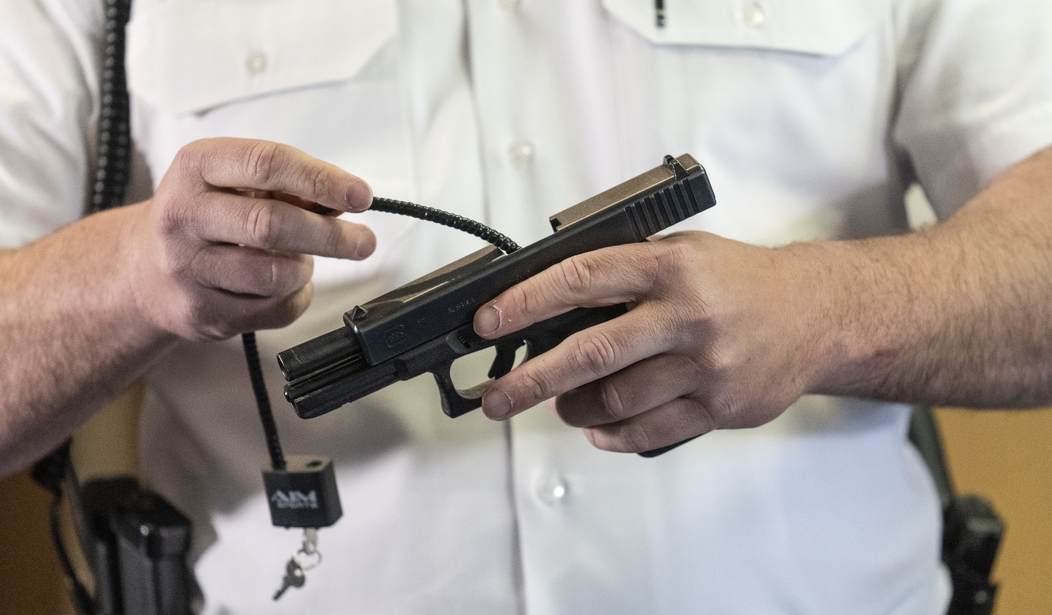Attorneys for the state of Oregon and Second Amendment groups squared off in federal court in Portland on Thursday in a challenge to the state's ban on unserialized firearms. The law, which was signed last year and is slated to take effect on September 1, prohibits the sale, manufacture and possession of any unserialized firearm, as well as "unfinished" frames and receivers and "undetectable" firearms; a restriction the Oregon Firearms Federation and the Firearms Policy Coalition say falls outside of the national tradition of keeping and bearing arms.
Attorney Stephen Duvernay, on behalf of the Oregon Firearms Federation and the Firearms Policy Coalition Inc., argued that self-made guns without serial numbers are in common use in the United States and that requiring his clients to add serial numbers to their guns or gun parts is impractical.
Lawyers for the state defended Oregon’s new law, countering that the Second Amendment doesn’t apply to ghost guns because they’re not typically used for lawful purposes.
That's a ludicrous contention by the state's attorneys. Yes, some criminals may use unserialized firearms, but that doesn't mean that hobbyists who build their own guns are using them for unlawful purposes. But according to Oregon special assistant attorney general Harry B. Wilson, the lack of a serial number turns an ordinary pistol or rifle into a "dangerous and unusual" weapon.
“There’s a long tradition in the United States of prohibiting dangerous and unusual firearms,” Wilson told U.S. District Judge Adrienne Nelson in federal court in Portland.
If a lack of a serial number made a gun "dangerous and unusual", that would mean that virtually every firearm manufactured before 1968 would fall outside the scope of the Second Amendment's protections. Yet Oregon's law specifically exempts guns produced before the Gun Control Act of 1968, so clearly the lack of a serial number doesn't turn a gun into a dangerous and unusual item.
... Wilson said anyone in Oregon with an unserialized gun can take it to a federal firearms licensee to have a serial number added to it.
House Bill 2005, passed by the Legislature last year, bans ghost guns but still allows Oregonians to make their own serialized and detectable guns, Wilson said.Under the new law, the ban on possessing a gun frame or receiver without a serial number or possessing any undetectable gun or gun without a serial number takes effect Sept. 1. The law’s ban on the sale and manufacture of any undetectable gun or a gun without a serial number took effect upon the governor’s signing of the bill.
This bill is a solution in search of a problem, and the unserious nature of the legislation is underscored by the punishment that lawmakers laid out in the text of the measure. Supposedly, this law is needed to curb criminals from carrying guns, but a first-time offense is punishable by a mere fine, which isn't going to have much of an impact on those using guns to aid in armed robberies, carjackings, home invasions, and other criminal acts of violence.
Interestingly enough, police in Portland say violent crime has declined substantially in the city this year, but no one is crediting Oregon's "ghost gun" restrictions or any other gun control law. Instead, they're pointing to efforts aimed at the trigger-pullers themselves, not the hardware they might use in their crimes.
The decrease seems to follow Portland's recent push toward proactively addressing violence, including the Ceasefire initiative and Safter Portland initiative, which were rolled out to address violence - particularly gun violence - and try to intervene before it can begin.
Ceasefire aims to find the "very small and very high-risk population is driving a significant portion of the gun violence in Portland" and then stop violence before it happens.
The plan includes frequent meetings between police, prosecutors, community groups, and others who will help them identify the most at-risk people, who will then be directed toward the intensive case management
Safer Portland operates in the same vein, providing funding to various outreach and community programs.
“Safer Portland is really to make sure that we have more pro-social activities,” OVP Interim Director Elisabeth Perez said. “We want to make sure that there are things like mentoring, workshops, sports, arts, and internships that they can apply to and have positive ways of spending their time.”
I've been a big fan of Ceasefire for several years, and I'm glad to see that it's seeing success in Portland. If you want to reduce violent crime, you have to target the most prolific offenders, not lawful gun owners. Oregon's ban on unserialized firearms is both unconstitutional and unnecessary, and hopefully U.S. District Judge Adrienne Nelson, a Biden appointee who took the bench last year, will grant the plaintiffs' request for an injunction before the law takes full effect in a couple of weeks.









Join the conversation as a VIP Member